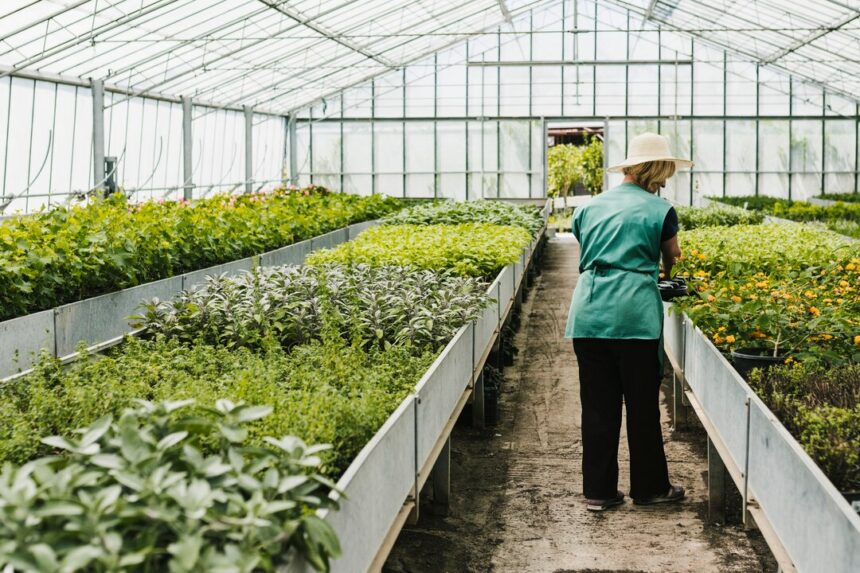South Africa’s agri-food sector is a vibrant and dynamic industry that plays a pivotal role in the country’s economy, food security, and social development. As the demand for sustainable, nutritious, and ethically sourced food continues to rise, entrepreneurial opportunities within the agri-food sector are flourishing. From farm to fork, innovative entrepreneurs are driving change, creating value, and shaping the future of food production, distribution, and consumption in South Africa.
- Agri-Tech Innovation: The intersection of agriculture and technology presents numerous opportunities for entrepreneurs. From precision farming and remote sensing to blockchain-enabled supply chain management, agri-tech innovations are revolutionizing the way food is produced, processed, and distributed.
- Vertical Farming and Urban Agriculture: With rapid urbanization and limited arable land, vertical farming and urban agriculture offer viable solutions to meet the growing demand for fresh produce in urban centers. Entrepreneurs can capitalize on this trend by establishing indoor farms, rooftop gardens, and hydroponic systems to cultivate high-value crops year-round.
- Value-Added Processing: Adding value to agricultural products through processing and manufacturing presents lucrative opportunities for entrepreneurs. From artisanal food products and gourmet condiments to functional foods and nutraceuticals, value-added processing adds diversity and value to South Africa’s agri-food offerings.
- Sustainable Farming Practices: With increasing consumer awareness of environmental and social issues, there is a growing demand for sustainably produced food. Entrepreneurs can seize this opportunity by implementing regenerative agriculture practices, organic farming methods, and agroecological approaches that prioritize soil health, biodiversity, and ecosystem resilience.
- Agri-Tourism and Farm Experiences: Agri-tourism offers unique opportunities for entrepreneurs to showcase South Africa’s rich agricultural heritage and cultural diversity. From farm stays and agriculinary tours to on-farm events and agritainment activities, agri-tourism experiences create memorable interactions between consumers and producers while generating additional revenue streams for farmers.
- Food Waste Reduction and Upcycling: Addressing food waste and promoting circular economy principles present fertile ground for entrepreneurship. Entrepreneurs can develop innovative solutions for food surplus redistribution, food waste valorization, and upcycled food products, contributing to both environmental sustainability and economic efficiency.
- E-Commerce and Direct-to-Consumer Sales: The rise of e-commerce platforms and digital marketing channels has democratized access to markets for small-scale producers. Entrepreneurs can leverage online platforms to sell their products directly to consumers, bypassing traditional intermediaries and capturing a larger share of the value chain.
- Community-Based Food Systems: Building resilient and inclusive food systems at the community level offers opportunities for social entrepreneurship. Initiatives such as community-supported agriculture (CSA), farmers’ markets, and food cooperatives empower consumers to support local producers while fostering social cohesion and food sovereignty.
- Agro-Processing Hubs and Incubators: Establishing agro-processing hubs and incubators provides aspiring entrepreneurs with access to shared infrastructure, equipment, and technical support. These innovation hubs serve as catalysts for entrepreneurship, fostering collaboration, knowledge sharing, and business development within the agri-food sector.
- Policy and Regulatory Advocacy: Entrepreneurs can play a crucial role in shaping policy and advocating for regulatory reforms that support a conducive business environment for the agri-food sector. Engaging with policymakers, industry associations, and civil society organizations enables entrepreneurs to influence decision-making and drive positive change at the systemic level.
As South Africa’s agri-food sector continues to evolve and adapt to changing market dynamics and consumer preferences, entrepreneurship emerges as a key driver of innovation, resilience, and sustainability. By embracing opportunities for innovation, value creation, and social impact, entrepreneurs have the potential to transform the agri-food landscape, create economic opportunities, and contribute to the well-being of communities across South Africa.







